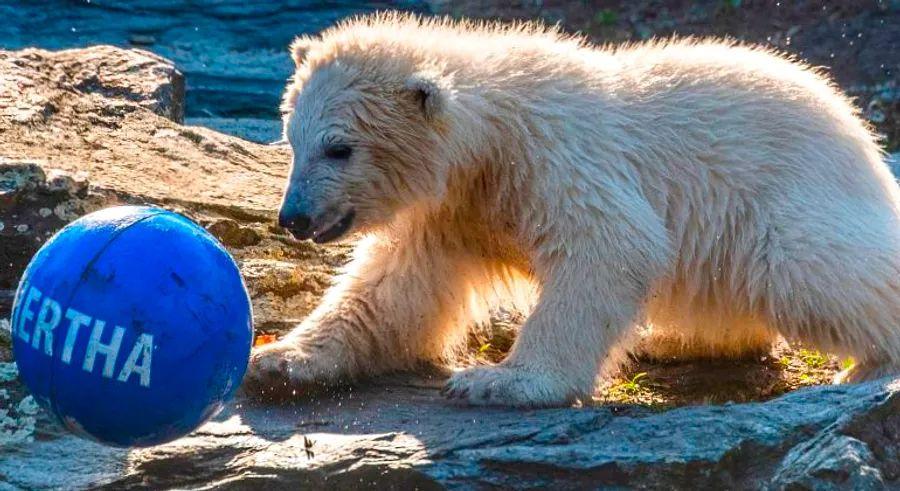Berlin zoo confirms the polar bear cub's parents were siblings

Genetic analysis has revealed that a baby polar bear at Tierpark Berlin zoo is the result of sibling mating.
A mix-up led to the incorrect identification of Tonja, a female polar bear born at Moscow Zoo, who was mistakenly listed as the offspring of the wrong parents, according to a Tierpark Berlin spokesperson on Wednesday.
Tonja had been assigned the birth records meant for another polar bear born two days later at Moscow Zoo. In reality, she shares the same parents as Wolodja, the male polar bear she later mated with in Berlin, resulting in the birth of Hertha in December 2018.
The discovery of inconsistent birth records at Moscow Zoo triggered suspicions, and genetic testing later confirmed that Tonja and Wolodja are siblings.

“We were completely taken aback,” the spokesperson commented, noting that Moscow Zoo was transparent and quickly informed their Berlin counterparts once the error was discovered.
“It was an unfortunate oversight,” she explained.
The bears are part of the European Endangered Species Program (EEP), a breeding initiative aimed at preserving the genetic diversity of polar bears in captivity.
Inbreeding decreases genetic diversity, which is essential for the long-term survival of species, according to the European Association of Zoos and Aquaria (EAZA).

“This significant error is a regrettable setback for the vital work of the European Conservation Breeding Programme,” stated Andreas Knieriem, director of Berlin Zoo.
“We must now focus on learning from such mistakes and ensuring that our efforts are more scientifically grounded moving forward,” he added.
The spokesperson stated that such an error is unlikely to occur again, as it’s rare for two breeding pairs to exist at the same zoo. Additionally, all animals born at Berlin Zoo are microchipped with identifying details, including information about their parents.
Following the discovery, neither Tonja nor Hertha will have offspring in the near future, as their genetic line is better represented in the captive polar bear population than previously believed, according to the spokesperson.
However, there remains a possibility that both bears could be bred in the future, she noted.
“Our goal is to maintain the broadest genetic diversity possible,” the spokesperson emphasized.
Hertha is a “happy and healthy bear” who will stay at the zoo with her mother, the spokesperson confirmed. Wolodja, on the other hand, has already been relocated to another zoo in the Netherlands.
Tonja also gave birth to a cub named Fritz in November 2016, but he tragically passed away from liver inflammation in March 2017. Fritz's father was Wolodja, though experts have stated that inbreeding is unlikely to have caused his death, according to the spokesperson.
Polar bears are classified as vulnerable by the International Union for Conservation of Nature (IUCN), which estimates that there are between 22,000 and 31,000 polar bears remaining in the wild.
The UK-based organization Bear Conservation estimates that over 300 polar bears are currently held in captivity worldwide.

1

2

3

4

5
Evaluation :
5/5